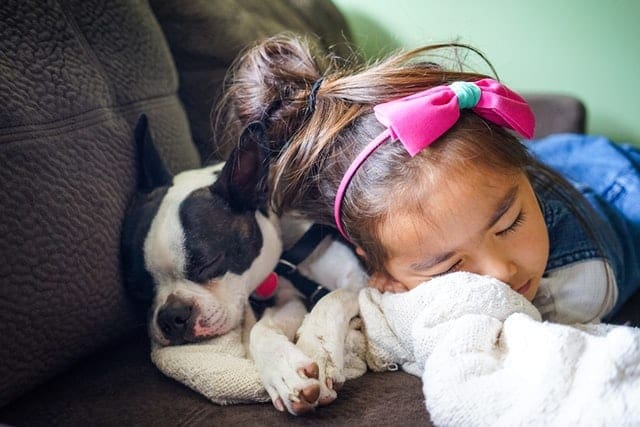The Importance of Sleep for Children

by Annika Tribby, CCC-SLP
Why is sleep so important for growing brains?
When a child doesn’t have enough hours to rest, they may feel tired or cranky, or you may be unable to think clearly. They might have a hard time following directions and processing new information. They may be more clumsy and forgetful too.
One more reason for a child to get enough sleep: If they don’t, they may not grow as well. Researchers believe too little sleep can affect growth and even their immune system.
What does good sleep look (and feel) like?
Most kids between 5 and 12 get about 9.5 hours a night, but experts agree that most need 10 or 11 hours each night. Sleep is an individual thing and some kids need more than others.
The general guide is toddlers need around 12 hours of sleep a night; children aged three to six – 10-12 hours; seven-12 years olds – 10-11 hours; and teenagers – around eight to nine hours.
This means that a seven year old, who wakes at 7am, should ideally be in bed between 7pm and 9pm. For some, a 7pm bedtime may not be realistic, especially if you’re a working parent who doesn’t get home until 6pm and needs to prepare dinner, check homework and sort bath and bedtimes as well as having some quality family time!
Remember – do the best YOU can do and seek out help if possible.

Source: https://sleepcouncil.org.uk/how-much-sleep-does-my-child-need
How can I improve my child’s sleep?
Try some of the following tips to help your child get some ZZZ’s:
- Try to have bedtime at the same time every night; this helps their body get into a routine.
- Follow a bedtime routine that is calming, such as taking a warm bath or reading.
- Limit foods and drinks that contain caffeine. These include some sodas and other drinks, like ice tea and don’t forget CHOCOLATE!
- Don’t have a TV in their room. Research shows that kids who have one in their rooms sleep less. If you have a TV, turn it off when it’s time to sleep.
- Don’t watch scary TV shows or movies close to bedtime because these can sometimes make it hard to fall asleep.
- Don’t exercise or be too active just before going to bed. DO be active earlier in the day — it helps a person sleep better.
- Use their bed just for sleeping — not doing homework, reading, playing games, or talking on the phone. That way, you’ll train your body to associate your bed with sleep
For more information on National Sleep Week including helpful resources, check out https://www.thensf.org/sleep-awareness-week/.

